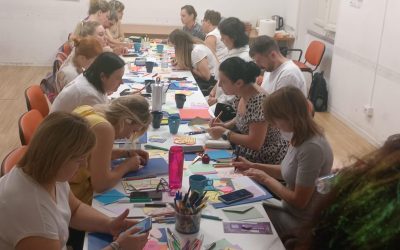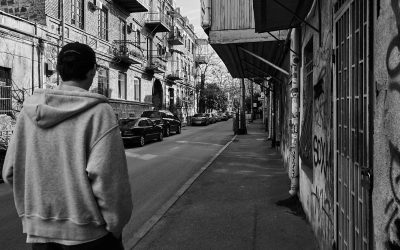How can prevention strategies against violent extremism among young people be improved, and which role can young people play in them? Youth representatives from various European countries (Austria, Belgium, Denmark, France, Germany, Italy, the Netherlands, Sweden and the United Kingdom) discussed in Vienna about these questions. They formulated the following key messages for policy makers, which were also presented at the OSCE Mediterranean Conference 2016: it is fundamental to see young people as positive agents. Policy measures should focus more on prevention, promotion of social cohesion and acknowledgement of diversity. European countries should ensure that all young people have equal rights and equal opportunities in terms of education, jobs, leisure activities and participation in public life.
The recommendations were elaborated in the Workshop “Youth and the Prevention of Violent Extremism”, which was organized by the Permanent Mission of Austria to the OSCE in Vienna on 4 October 2016. CESIE participated in the Workshop and represented amongst others, the CoCoRa project as good practice for the prevention of radicalization. CoCoRa develops a community-based approach that involves young people actively in all project phases.
The youth representatives started their discussion with the identification of driving factors for violent extremism. In all participating countries significant numbers of young people have adhered to Daesh and right-wing violent radicalization. There are many different reasons for which young people turn to violent extremism, but young people between 12-30 years are particularly at risk: they are more impressionable and thus more accessible to extremist ideas offering apparently clear answers. Other risk factors include marginalization; traumatization from previous war experiences; missing recognition from society; missing opportunities and hope for the future; experiences of injustices; a feeling of alienation from family and society.
In most of the countries, anti-radicalisation strategies have been put in place. However, not all of them are effective and constructive. Thus, policies that foster stigmatization and suspicions against a specific community should be avoided. Instead, it is recommendable that prevention policies seek to foster mutual understanding and dialogue between religions, strengthen diversity and equal citizenship, and work towards better education of young people. Militant islamists should not be equated with Islamic religion, but be unmasked as extremist ideologists that use and re-define religious terms for their purposes. Further, attention should be paid to the increasing polarization in European societies, and the development of other violent extremist groups, such as right-wing extremism.
The good practices youth representatives presented included: early interventions in form of general prevention and social inclusion activities, where young people are actively involved; the creation of participatory opportunities for young people to discuss with local politicians and other local stakeholders about their needs and desires; empowerment of mothers and families through “mother schools” and counseling; approaches that are based in the community, and where communities are actively involved.
The topic of the OSCE Mediterranean Conference 2016, which took place on 5 and 6 October 2016, directly after the workshop, was: “Youth North and South of the Mediterranean: Facing Security Challenges and Enhancing Opportunities”. Youth representatives actively contributed to the various debates, presenting their personal experiences and the policy recommendations they had developed.
Take action now and get involved! The CoCoRa Prevention Programme for young people in Palermo will start in November 2016. The programme offers you the opportunity to meet other young people, learn more about different culture and religions, get to know local opportunities, and become aware of your personal strengths!
If you are between 17 and 25 years old and interested in participating, you can already write to migration@cesie.org.









